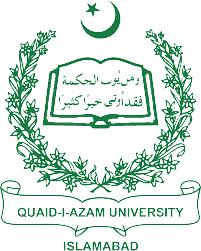National Institute of Psychology, Quaid-i-Azam University, Islamabad
Dr. Muhammad Ajmal
Centre of Excellence, Quaid-i-Azam University, Islamabad
International Conference on “Mental Health of Afghan Migrants: Issues, Challenges, and Solutions for All Stakeholders”
National Institute of Psychology (NIP) in collaboration with the International Organization for Migration hosted an international conference on “Mental Health of Afghan Refugees: Issues, Challenges, and Solutions for All Stakeholders” at Serena Hotel Islamabad on March 15, 2023. The event brought together stakeholders, researchers, practitioners, and policymakers from across the globe to discuss issues, challenges, and solutions related to the mental health of Afghan refugees in Pakistan. Prof. Dr Rubina Hanif, Director NIP, the chief organizer of the conference, alongwith Dr Humaira Jami (Organizer) and collaborators Dr Marsela Nyawara (IOM) welcomed the guests and speakers.
The conference featured three keynote speakers, including Mr. Sher Jan Ahmadzai(USA), Professor Dr. Jahanzeb Khan(VC, FATA), and Ms. Tammi Sharpe(UNHCR). Mr. Ahmadzai is a leading mental health advocate and consultant on refugee mental health. …….
Pre-Conference Workshops
Day-1:
National Institute of Psychology conducted pre-conference training workshop titled “Addressing Gender Disparity in Mental Health of Migrants” in collaboration with International Organization for Migrants keeping in view the pressing psychological issues faced by Afghan migrants. The primary objective of the training was to equip the frontline workers with essential theoretical and practical toolkit to deal with Afghan migrants. The workshop was attended by representatives from various national and international organizations and majority of the participants were working as social mobilizers, health officers, program development coordinators, reporting coordinators, psychiatrists, psychologists, consultants, counselors, admin officers, site officers, project assistants, as well as technical advisors.
Day-2:
Day 2 of the preconference workshops was loaded with hands-on activities which were targeted at identifying the distress among children, using art therapy as a form of treatment, practicing mindfulness, and understanding conflict and peace. Sixty participants, from all over Pakistan, took part in the training. After a welcome note by Prof. Dr. Rubina Hanif, Director National Institute of Psychology, first session was started by Ms. Sharmeen Khan. She conducted activities through which social, physical, psychological, emotional, environmental, and spiritual factors of distress can be identified in children


